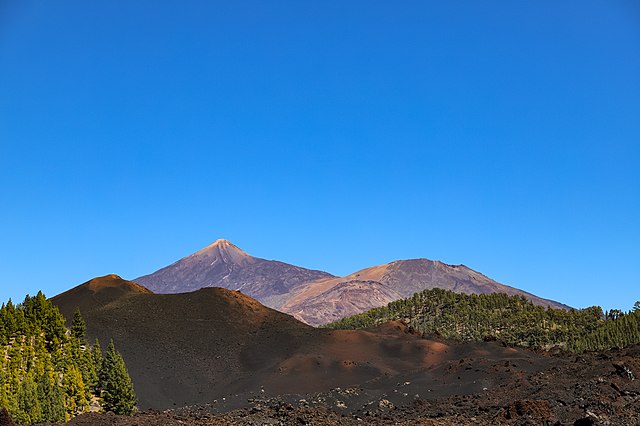
Fears have been raised on the Island of Tenerife following statistics which show the level of seismic activity within the space of just one month.
The National Geographic Institute has revealed that since June 11, over 150 earthquakes were recorded near Teide Volcano in Tenerife, with a staggering 112 of them logged in just over 24 hours between July 5 and July 6, according to The Express, Saturday, July 8.
Recently, tremors were detected at around 40 to 50 kilometres under the surface. Meanwhile, it has emerged that magma reservoirs are present at just 5 kilometres underground.
Astonished researchers on the island discovered that basaltic magma has cooled underground, causing its chemical composition to change, which they say is resulting in a ‘potentially explosive’ type of magma
Heightened Activity Of Earthquakes
Canary Islands-based research group INVOLCAN has been constantly monitoring Teide for over a year now after 400 quakes were detected in June 2022.
Matthew Blackett, a professor at Coventry University, said: ‘It remains a very active volcano. This means that there is an active magma chamber below the island.’
Apparently, the seismic tremors are caused by the magma shifting around: ‘Think about when you touch a pipe with water flowing through it. You can feel a vague vibration.’
Teide has been likened to the notorious volcanoes, Vesuvius and Etna. The last time Teide erupted was in 1909, an event which lasted for 10 days and spewed out rock fragments 20 km and ash almost 130 km, at the time there were no direct casualties.
However, Professor Blackett added: ‘If Teide were to erupt, it could have a significant effect. One characteristic of Teide is that where the lava effuses from is not consistent, so it would be hard to know which areas would be affected.’
Low Risk Of Teide Erupting
Thankfully he concluded that the risk is low and confirmed that there were ‘few’ indicators that an eruption would occur any time soon.
This view was also backed up by Volcanologist Professor David Pyle, at the University of Oxford, who said that the threat level was ‘currently very small,’ before he went on to reassure: ‘there is no indication that the volcano is about to erupt’.
Stay connected with us on social media platform for instant update click here to join our Twitter, & Facebook
We are now on Telegram. Click here to join our channel (@TechiUpdate) and stay updated with the latest Technology headlines.
For all the latest World News Click Here

